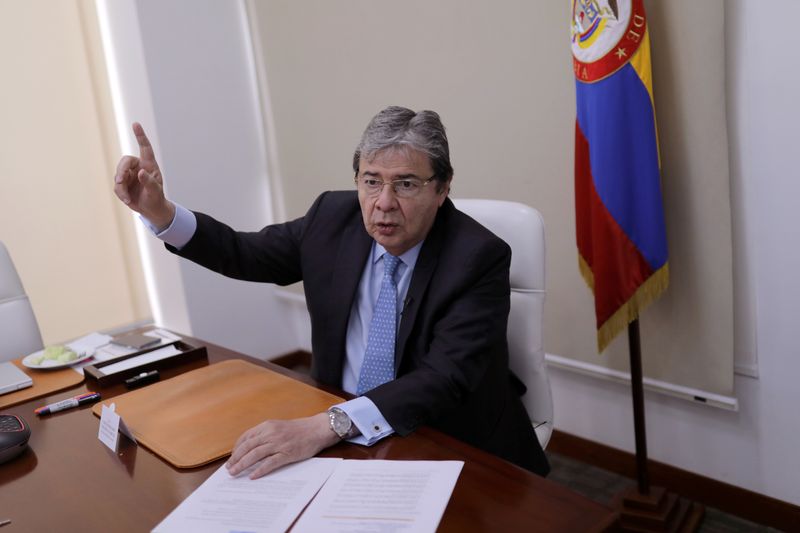By Luis Jaime Acosta
BOGOTA (Reuters) - Colombia must restart aerial fumigation of coca with the herbicide glyphosate as soon as possible to reduce cocaine production, income for illegal armed groups, massacres and the killings of human rights activists, the defense minister said.
The Andean country, a top producer of cocaine, suspended aerial fumigation with glyphosate in 2015 on concerns by the World Health Organization (WHO) it may cause cancer.
Cultivation of coca, the base ingredient in cocaine, subsequently shot up to its highest levels in nearly two decades in 2017, according to United Nations figures.
"There is no doubt at all. Colombia needs to reestablish aspersion, aerial fumigation with glyphosate for national security reasons," Defense Minister Carlos Holmes Trujillo told Reuters in an interview on Friday. "Logically it needs to be reestablished with assurances for health and the environment."
President Ivan Duque's government is in the process of complying with standards set by the Constitutional Court to resume the fumigation.
It will also need environmental regulators' permission, recently delayed by legal actions from communities who oppose aerial fumigation.
The WHO's cancer arm classified glyphosate as "probably carcinogenic to humans." The U.S. Environmental Protection Agency disagrees, saying the chemical is not a carcinogen.
Spraying with glyphosate will cut off resources "for those who commit massacres and kill social leaders," Trujillo said, referring to the murders of human rights activists, many of whom oppose illegal mining and coca cultivation, and recent mass killings the government attributes to groups funded by drug trafficking.
There were 154,000 hectares (380,550 acres) planted with coca in Colombia at the close of 2019, according to the UN, with cocaine production potential at 1,137 metric tonnes.
That figure is more than triple the 48,000 hectares recorded in 2013, when aerial fumigation was in use, Trujillo said.
Trujillo would not give an estimated date for a restart in spraying from airplanes, but said the practice is more efficient and safer than the manual eradication currently in use.
Between 400 and 600 hectares of coca could be destroyed daily with aerial fumigation, he said, compared with just 170 hectares with manual eradication.
Aerial fumigation also protects eradication teams from attacks by armed groups and landmines, Trujillo said. Sixteen members of the security forces have died so far in 2020 during eradication efforts and more than 100 have been injured.
The uptick in mass killings and murders of activists has sparked criticism from the international community and rights groups, which accuse Duque's government of not doing enough to protect vulnerable communities.
Research group Indepaz says 259 activists have been killed so far in 2020, while official statistics count 23 massacres with a total of 111 victims.
Despite the lack of aerial fumigation, Colombia will eradicate a record 130,000 hectares during 2020, the minister added.
Manual eradication and voluntary crop substitution will continue even once aerial fumigation is re-approved, Trujillo said.

"We need to create conditions for investment, large investment, investment in sustainable and profitable projects for Colombian farmers," Trujillo said.